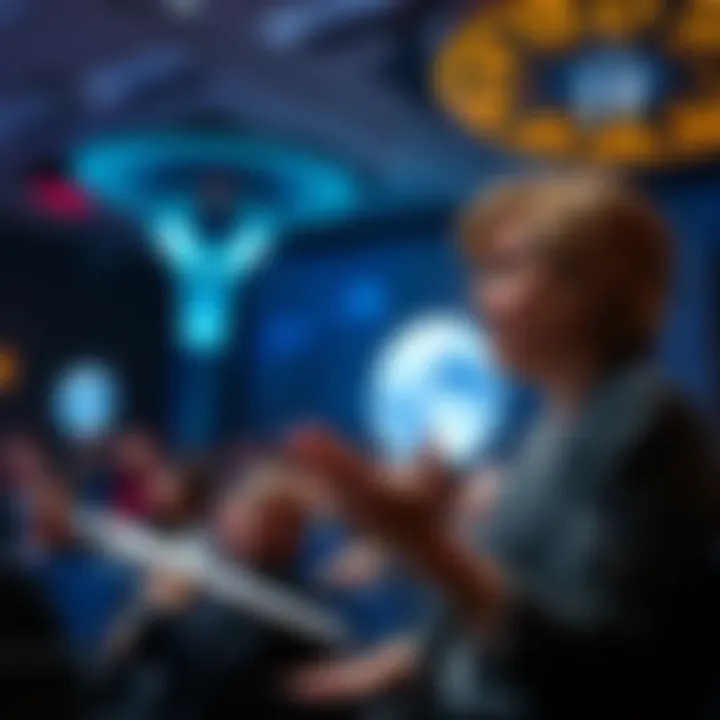Sabine Hossenfelder Sparks Debate Over Alien Technology Dismissal | Risks of Type 1 Errors in Science
Edited By
Nina Bard

A controversy brews as astrophysicist Sabine Hossenfelder warns against dismissing the possibility of alien technology linked to the interstellar object 3I/Atlas. Her remarks highlight the dangers of overzealous debunking within the scientific community.
Hossenfelder's Caution on Dismissing Alien-Tech Claims
In a recent commentary, Hossenfelder emphasized the need to keep an open mind regarding 3I/Atlas, stating, "Not looking at a piece of alien tech because we don’t want Avi Loeb to be right could be the single biggest mistake that our civilization can ever make."
She clarified that while current evidence does not suggest 3I/Atlas is alien technology, the assumption that it is merely an unusual comet stifles potential scientific breakthroughs.
"I worry that astrophysicists may be too eager to dismiss the alien-tech possibility, leading to Type 1 errors," she stated.
Defining Type 1 and Type 2 Errors: A Scientific Dilemma
Hossenfelder elaborated on the distinction between Type 1 and Type 2 errors, emphasizing that scientists often focus on the latter, which involves failing to reject a false hypothesis. She noted,
"Scientists have a big hammer labeled ‘insufficient evidence’ that they love to use."
In contrast, Type 1 errors occur when a true hypothesis is incorrectly dismissed, a scenario seen with the idea that "bacteria can cause cancer."
Community Reactions: Divided Opinions on Alien Hypotheses
Discussion on forums reveals a mixed sentiment toward Hossenfelder's arguments. Some participants echo her concerns about the scientific community sidelining the possibility of extraterrestrial connections. One comment noted, "Avi Loeb is doing science, even if it challenges popular belief."
Conversely, others cast doubt on Hossenfelder's motives and reliability, calling her a "pop sci peddler" and pointing to a history of undermining whistleblowers. Critical voices have emerged, with claims stating,
"Sabine lies for money."
Key Points from the Discussion
🔍 Hossenfelder underscores the importance of considering alien tech: "Not looking at this could be a huge mistake."
⚖️ The community is split: some defend scientific explorations, while others attack Hossenfelder's credibility.
📉 Concerns arise over the accuracy and transparency regarding 3I/Atlas imaging as it rapidly moves beyond observational reach.
What's Next for 3I/Atlas?
As speculation grows, the scientific community faces the challenge of balancing skepticism and curiosity. The need for rigorous observation remains pressing, especially as the object continues to head away from Earth. Can we afford to ignore the potential for groundbreaking discoveries in the pursuit of debunking?
With funding for cosmic exploration becoming increasingly competitive, Hossenfelder's call for dialogue could ignite renewed interest in the exploration of both conventional and unconventional hypotheses.
In an age where knowledge is crucial, navigating these conversations may very well determine the future of astrobiology.
Unfolding Scenarios for Astrobiology and Discovery
As the debates rage on about Hossenfelder's warnings, there's a strong chance that the scientific community will soon face a critical re-evaluation of its approach to unidentified phenomena like 3I/Atlas. Experts estimate around a 70% likelihood that new observational technologies will soon emerge, allowing for more comprehensive analysis of celestial objects. With increased competition for funding in cosmic exploration, institutions may soon pivot to more inclusive research methodologies, encouraging scientists to explore unconventional hypotheses. This shift could spark collaboration between skeptics and believers, ultimately enriching our understanding of the universe and revitalizing public interest in astrobiology.
A Lesson from the History of Medicine
Consider the early days of medical science, where the concept of germs was met with fierce resistance. It was not until decades later that the medical community embraced this once-ridiculed idea, ultimately transforming healthcare. Similarly, the current climate surrounding alien tech claims echoes those early days—ignoring unconventional ideas might hinder genuine breakthroughs. Just as the recognition of germs revolutionized medicine, so could an openness to extraterrestrial possibilities reframe our understanding of what lies beyond Earth, pushing the boundaries of discovery in the cosmos.
